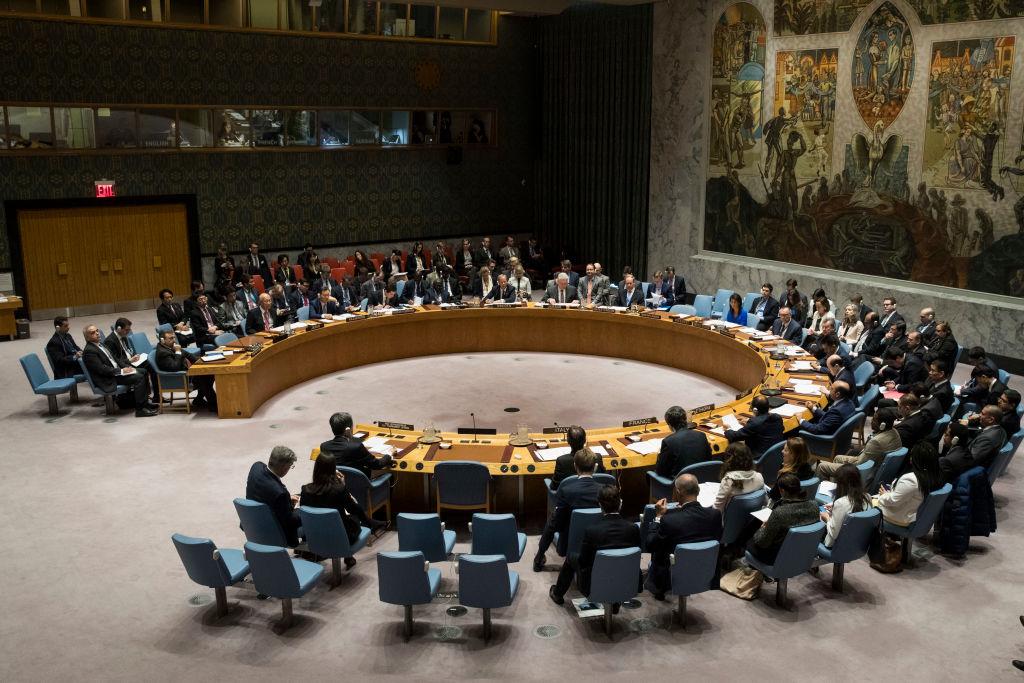North Korea threatened the United States on Monday, Aug. 7, with “thousandsfold” revenge after new sanctions unanimously passed a vote of the United Nations Security Council on Saturday.
If those sanctions take hold, they could cut the dictatorship’s critical coal exports by a third.
North Korea’s official news agency described the sanctions as a “heinous plot” and a “violent violation” of its sovereignty.
Vowing retaliation, the regime said it would make America pay “thousands of times.”
The sanctions come in response to a July 28 launch of an intercontinental ballistic missile capable of reaching much of the United States.
North Korea’s Coal Trade
Coal exports to China account for a major portion of North Korea’s total exports, valued at $3 billion for 2016.
Past sanctions, however, have struggled to make the impact they should have due to Chinese companies illegally importing that coal, notes a 2014 paper from researchers at Harvard University.
“The North Korean regime is using coal in tremendously sophisticated and strategic ways to thrive despite economic sanctions, and private Chinese trade companies are knowingly or unknowingly playing a critical role,” wrote the authors.
They noted that in 2013, North Korea eclipsed Vietnam to become the world’s No. 1 exporter of anthracite, the highest ranked type of coal.
Due to the somewhat chaotic enforcement of regulations in China, or lack thereof, sanctions can be difficult to enforce.
“North Korea’s business elites are highly intelligent economic sharpshooters who methodically take advantage of Chinese decentralization to maximize profits,” reads the report.
China’s unilateral ban on North Korean coal imports earlier this year appears to have been largely ineffective. That ban was a response to the February assassination of Kim Jong Un’s older brother, who had been living under Chinese protection.
Coal makes up 40 percent or more of North Korea’s total export revenue and China accounts for 75 percent of North Korean trade.
Whether the ban will be effective will largely hinge on whether the Chinese regime can keep Chinese companies from smuggling in North Korea’s discounted coal. Reports that the Chinese regime was strengthening customs enforcement suggest that may be possible.
China’s Support
If the sanctions work, they could be a crippling blow to the North Korean economy.
U.S. Ambassador to the United Nations Nikki Haley called the resolution the largest sanctions package the North Korean regime has ever faced and “the most stringent set of sanctions on any country in a generation.”
Speaking to Fox News’ Haley said that the sanctions effectively “kicked them in the stomach.”
China’s support for the ban was also welcomed by the United States and other allies even though China’s unilateral ban on coal imports from North Korea was to be in place until February 2018 regardless.
Chinese Foreign Minister Wang Yi urged the North to “maintain calm” despite the U.N. vote during a meeting with North Korea’s top diplomat in Manila on Sunday.
“Do not violate the U.N.’s decision or provoke international society’s goodwill by conducting missile launching or nuclear tests,” Wang said at the meeting of foreign ministers.
International reaction
On Monday, Japanese Prime Minister Shinzo Abe hosted Cambodian Prime Minister Hun Sen in Tokyo. The two leaders “had an honest and direct exchange regarding international affairs, starting with North Korea and the South China Sea,” Abe told reporters.
“We agreed that the international community needs to stick together and pressure North Korea, and to cooperate regarding this matter at the ASEAN meetings, ” he said.
In an hourlong telephone conversation on Monday, U.S. President Donald Trump and South Korean President Moon Jae-in also agreed to apply maximum pressure on North Korea.
“The two leaders affirmed that North Korea poses a grave and growing direct threat to the United States, South Korea, and Japan, as well as to most countries around the world,” reads a statement from the White House.
For its part, Pyongyang said it would never negotiate over its nuclear program as long as the United States maintained a hostile policy toward it.
In a transcript of a statement by Foreign Minister Rib Yong-ho, which was distributed to media in Manila on Monday, North Korea called the new sanctions “fabricated,” and pledged “strong follow-up measures.”
It also warned that its ICBM test last month put the entire United States in its firing range.





